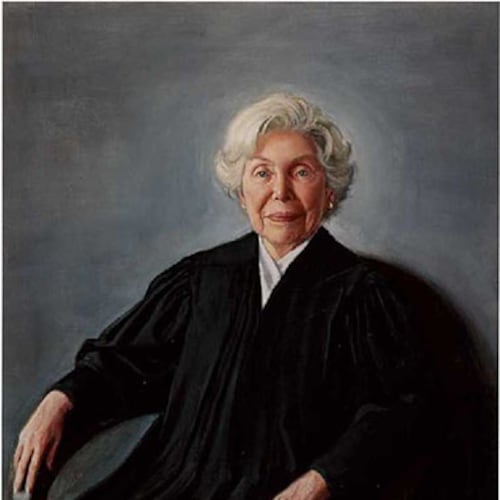Justin Chapman, who spent years in prison after being wrongly convicted of murder and arson, has settled his legal malpractice lawsuit against his former appellate lawyer.
The confidential settlement ends the litigation against Atlanta attorney Fenn Little,
Credit: Bill Rankin
Credit: Bill Rankin
who represented Chapman in his initial rounds of appeals.
The case against Chapman, who has always maintained his innocence, was chronicled in "Breakdown: Railroad Justice in a Railroad Town, " an eight-part podcast by The Atlanta Journal-Constitution. The podcast detailed alarming breakdowns in Georgia's criminal justice system throughout Chapman's case.
"Justin is very happy to have closed down the litigation and is certainly looking forward to moving on and continuing to regain the parts of his life that he’s missed out on," Chapman's lawyer, Darren Summerville, said Friday.
On Wednesday, Summerville filed a motion in Fulton County State Court to dismiss the lawsuit on account of the settlement. Neither Little nor his lawyer, Christine Mast, responded to emails seeking comment.
Chapman was convicted and sentenced to life in prison for the 2006 murder of his elderly neighbor, Alice Jackson, in Bremen. Prosecutors said Chapman set fire to his duplex and the blaze spread next door, killing Jackson.
The Georgia Supreme Court granted Chapman a new trial in 2015, finding prosecutors withheld critical evidence that could have been used in his defense. Last year, after a lengthy investigation, the Prosecuting Attorneys' Council of Georgia decided not to retry Chapman for arson and murder.
Key testimony used against Chapman at trial had been discredited and contradicted, the prosecuting council said, adding there was no other evidence to corroborate the testimony used to convict him. The council's court filing did not implicate Chapman in the crimes in any way.
Credit: Bill Rankin
Credit: Bill Rankin
After Chapman's conviction, Little was appointed to represent him for his motion for a new trial and his appeal.
Little waited three years before filing the motion for new trial and, when he did, he named the wrong court, made incorrect statements about Chapman's defense at trial and even cited the wrong testimony. When called to testify about his work on Chapman's case, Little acknowledged he never read the police interviews with key witnesses and only "skimmed" the trial transcript.
Little lost Chapman's motion for a new trial, even though Haralson County's district attorney at that time had conceded that Chapman deserved a new trial. Little's appeal of that ruling was later rejected by the state Supreme Court.
If Little had done a competent job, Chapman would have been granted a new trial in 2011 and would not have spent the next four years in prison, his lawsuit alleged.
About the Author
The Latest
Featured




